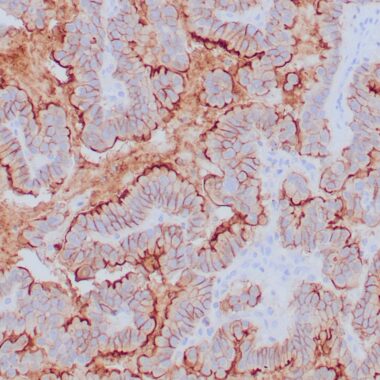The claudin superfamily consists of many structurally related proteins in humans. These proteins are important structural and functional components of tight junctions in paracellular transport. Claudins are located in epithelial and endothelial cells in all tight junction-bearing tissues. Three classes of proteins are known to localize to tight junctions, including the claudins, occluding, and junction adhesion molecules. Claudins, which consist of four transmembrane domains and two extracellular loops, make up tight junction strands. Emerging evidence suggests that the claudin family of proteins regulates transport through tight junctions via differential discrimination for solute size and charge. Claudin expression is often highly restricted to specific regions of different tissues and may have an important role in transcellular transport through tight junctions.
